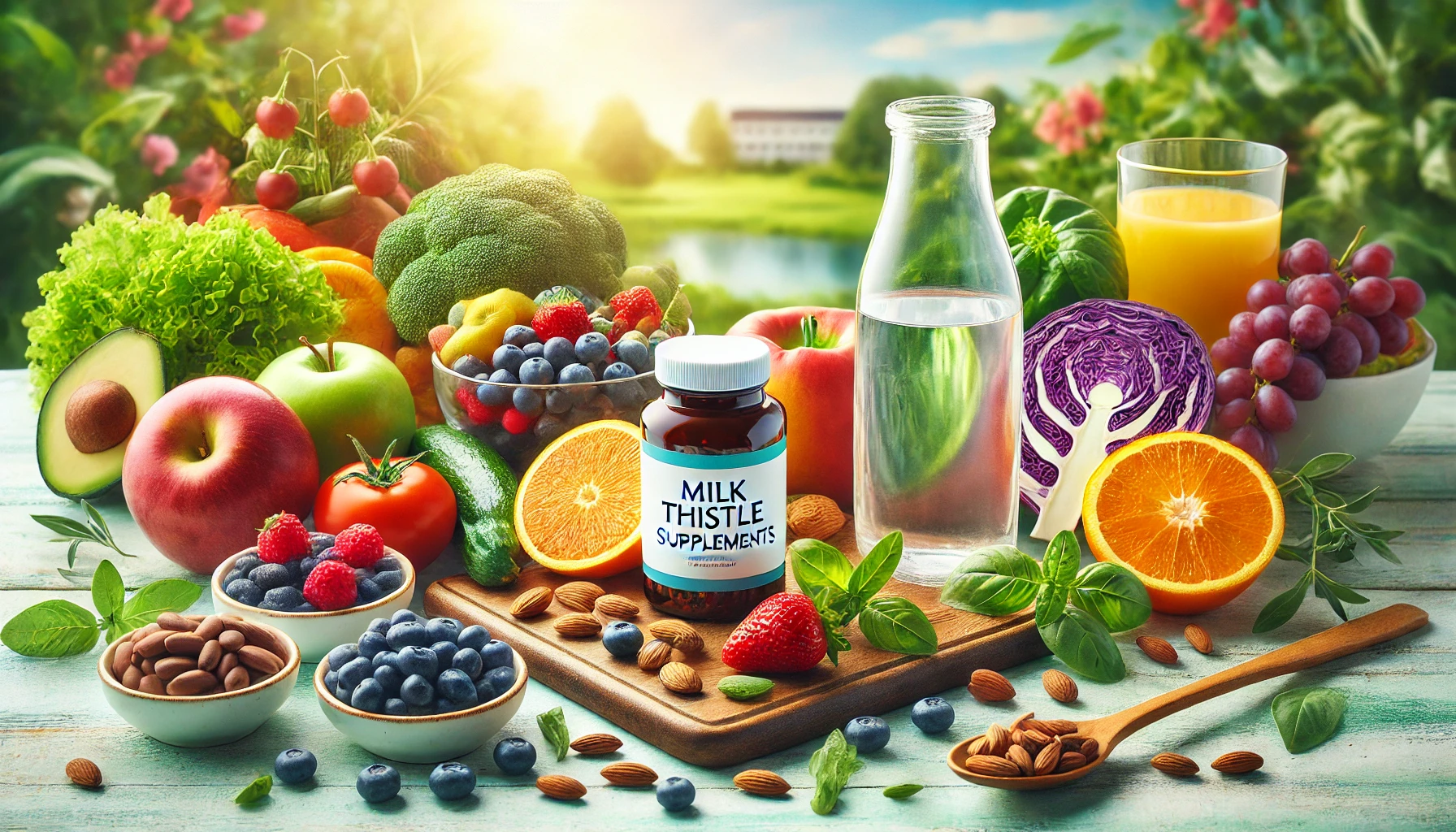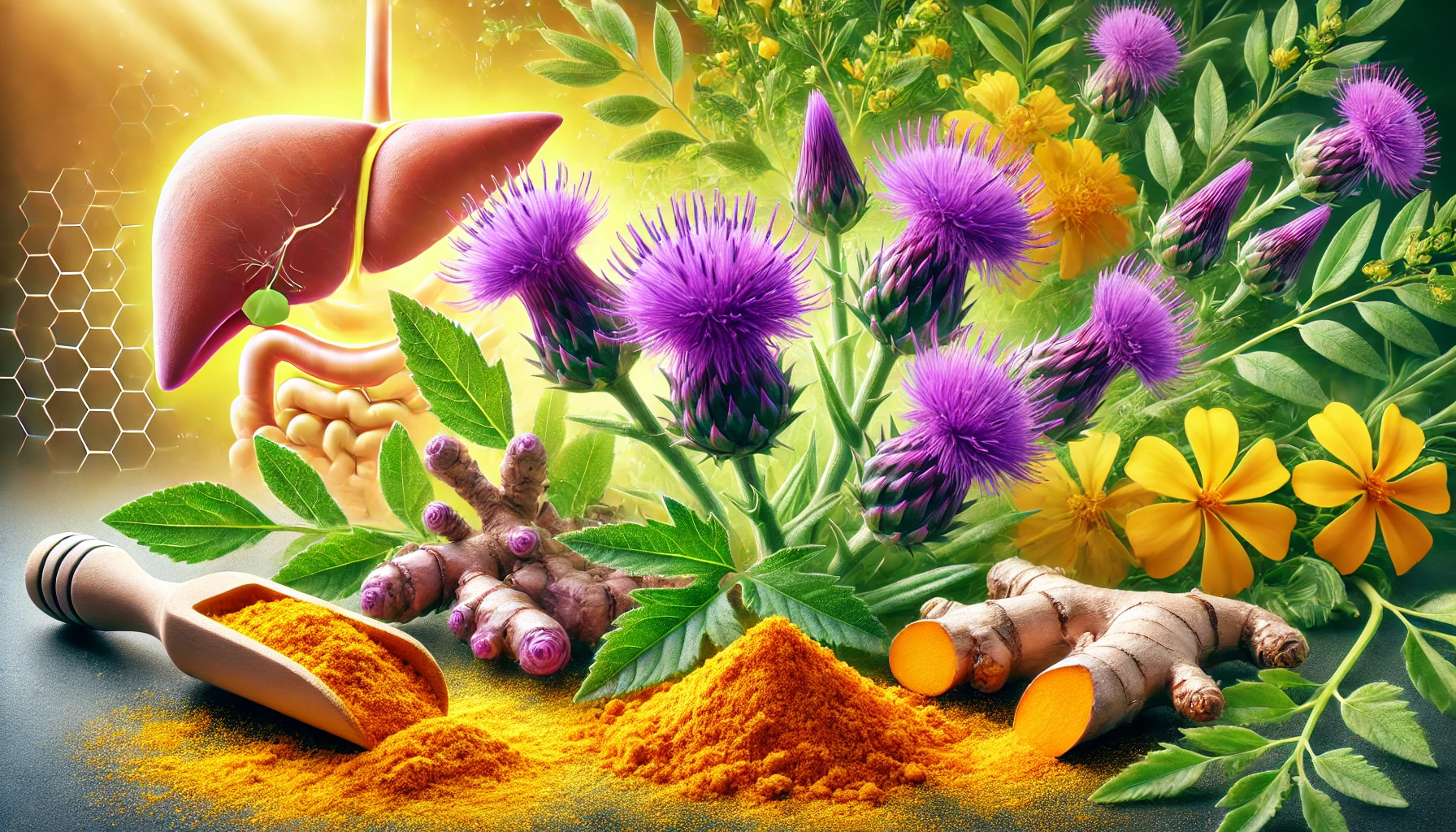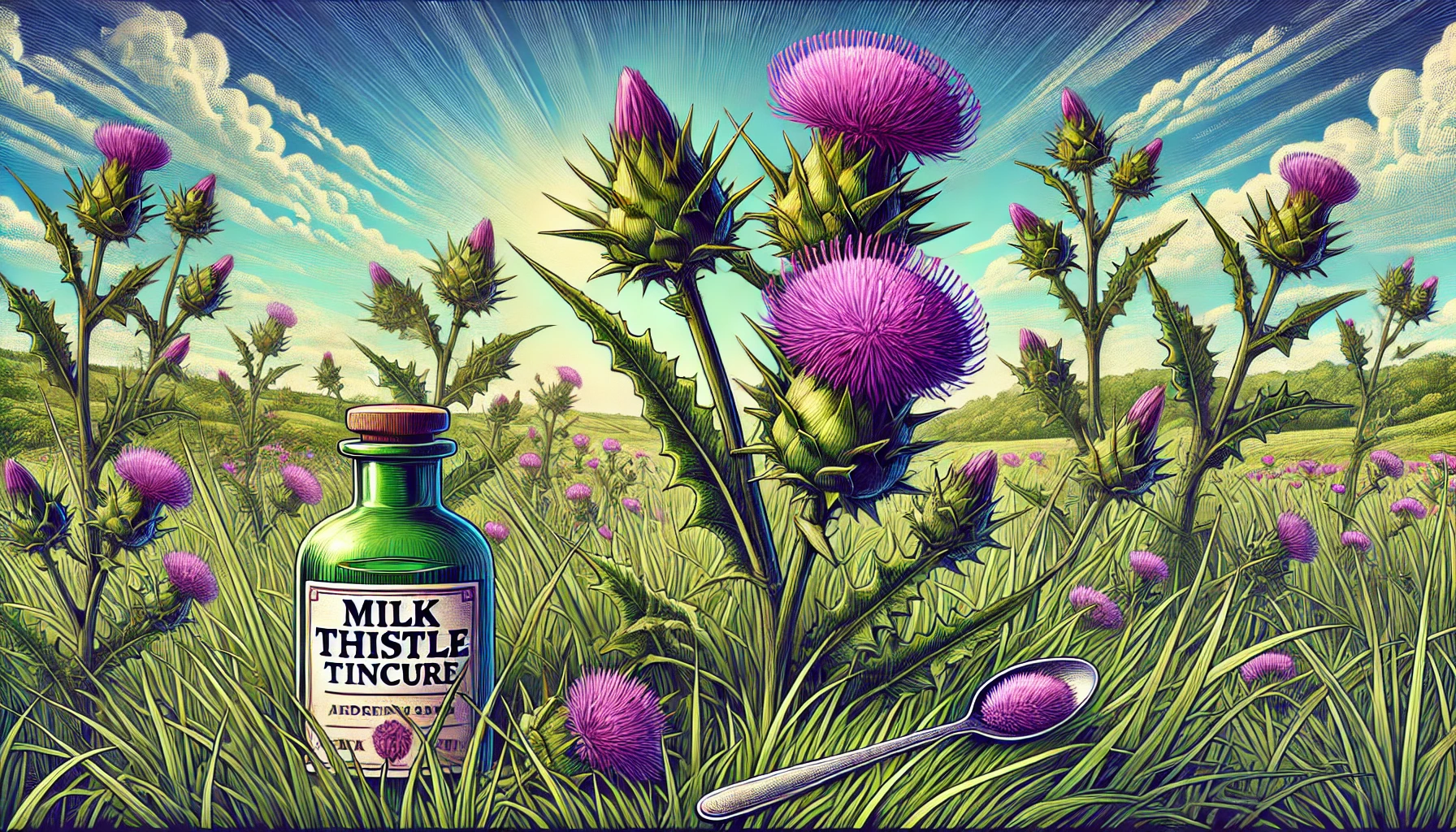When it comes to liver health, there’s a lot of buzz about various detoxes and liver cleanse products. But how effective are they compared to a natural supplement like milk thistle? This article dives deep into the differences between popular liver cleanse methods and the benefits of milk thistle, providing an evidence-based analysis to debunk myths and highlight effective liver support strategies.
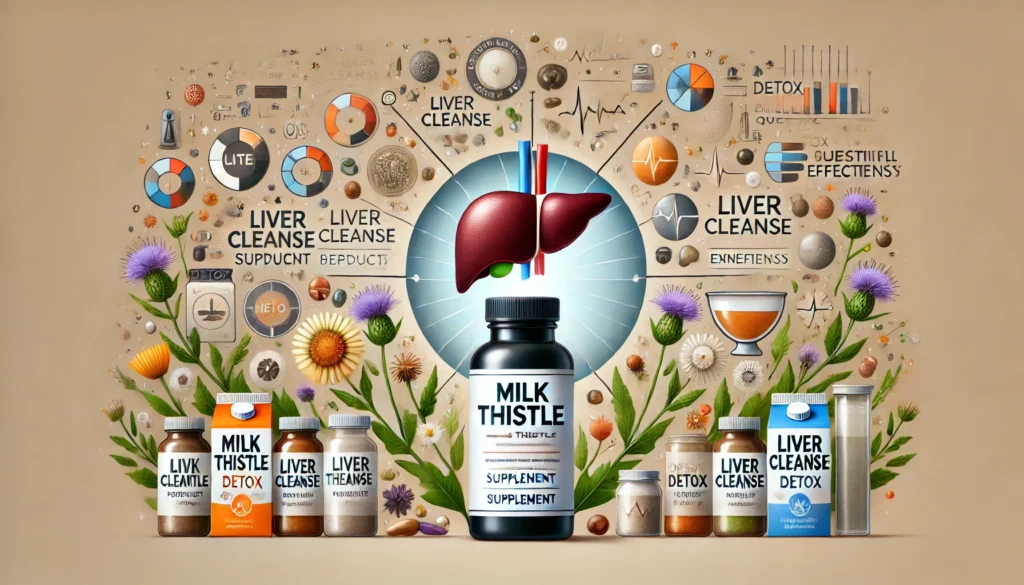
Understanding Liver Cleanses: What Are They?
Liver cleanses, also known as liver detoxes, are often marketed as a way to rid the body of toxins and improve liver function. These cleanses can range from strict fasting and consuming certain juices to taking herbal supplements. Proponents claim that these methods can detoxify the liver, boost energy levels, and improve overall health. However, the science behind liver cleanses is shaky at best.
Most liver cleanse products lack scientific backing and are not necessary for liver health. The liver naturally detoxifies itself through its complex functions. In fact, many cleanses can be potentially harmful, leading to dehydration, nutrient deficiencies, and other health issues.
“Summary: The liver is already equipped with natural detoxification processes, making most liver cleanse products unnecessary and potentially harmful.”
The Benefits of Milk Thistle for Liver Health
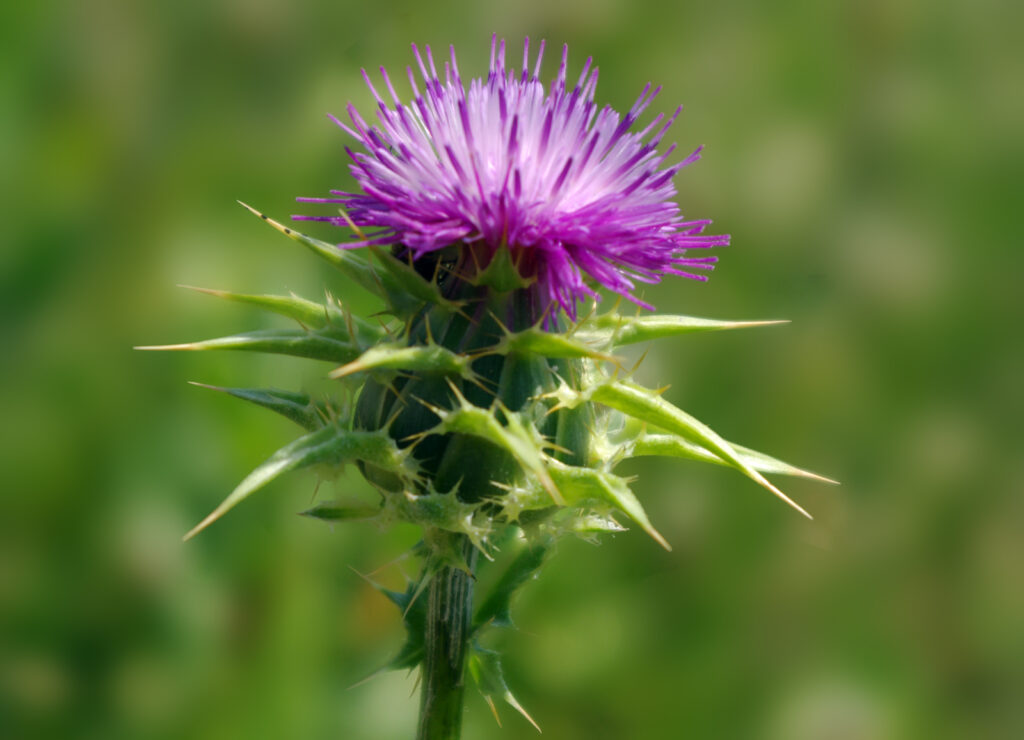
Milk thistle (Silybum marianum) is a herbal remedy that has been used for centuries to treat liver and gallbladder disorders. Its main active compound, silymarin, has antioxidant, antiviral, and anti-inflammatory properties. Unlike many liver cleanse products, milk thistle has been the subject of numerous studies that support its potential benefits for liver health.
Research shows that milk thistle may help protect the liver against toxins, promote the growth of new liver cells, and reduce inflammation. It’s often used to support liver health in people with chronic liver diseases like cirrhosis, fatty liver disease, and hepatitis (1).
“Summary: Milk thistle is a scientifically supported herbal remedy that offers liver protection, promotes liver cell regeneration, and has anti-inflammatory properties.”
Evidence-Based Comparison: Liver Cleanses vs. Milk Thistle
When comparing liver cleanses with milk thistle, it’s crucial to consider the scientific evidence supporting each. Most liver cleanses rely on anecdotal evidence and lack clinical trials to back up their effectiveness. In contrast, milk thistle has been extensively studied, with several clinical trials supporting its efficacy in improving liver health.
Moreover, liver cleanses often promote extreme dietary restrictions that are not sustainable and may cause more harm than good. On the other hand, milk thistle can be easily integrated into a balanced diet and is generally considered safe for most people when taken in recommended doses.
“Summary: Unlike liver cleanses, which lack scientific support and may be harmful, milk thistle is a safe and effective option for supporting liver health, backed by clinical evidence.”
Debunking Myths About Liver Cleanses
There are several myths surrounding liver cleanses that need to be addressed. One common myth is that the liver accumulates toxins that need to be flushed out. In reality, the liver’s role is to process and eliminate toxins, and it does this efficiently without the need for external interventions. Another myth is that liver cleanses can reverse liver damage. However, there’s no evidence to support this claim, and severe liver damage requires medical intervention.
Milk thistle does not claim to be a miracle cure but rather a supplement that can support liver health as part of a healthy lifestyle. It helps by protecting liver cells and promoting their regeneration but is not a substitute for medical treatments in cases of severe liver conditions.
“Summary: Myths about liver cleanses often misrepresent the liver’s natural detoxifying abilities. Milk thistle, however, supports liver health without making exaggerated claims.”
Choosing the Right Liver Support Strategy
When deciding between liver cleanses and milk thistle, consider what is both safe and effective. Milk thistle emerges as a better option because of its evidence-based benefits and minimal side effects. On the contrary, liver cleanses can pose risks and are not backed by solid scientific evidence.
For those looking to support their liver health, integrating milk thistle supplements into their diet, coupled with a healthy lifestyle, may provide a more sustainable and safer approach than participating in restrictive and potentially harmful cleanses.
“Summary: Milk thistle offers a safer and more effective strategy for supporting liver health compared to unproven liver cleanses.”
FAQs
Are liver cleanses safe?
Most liver cleanses lack scientific backing and may pose health risks, such as dehydration and nutrient deficiencies.
How does milk thistle support liver health?
Milk thistle contains silymarin, which has been shown to protect liver cells, promote their regeneration, and reduce inflammation.
Can liver cleanses reverse liver damage?
No, liver cleanses cannot reverse liver damage. Severe liver conditions require medical intervention.
Is milk thistle effective for everyone?
While milk thistle is generally safe, it may not be suitable for everyone, especially those with allergies to plants in the Asteraceae family. It’s best to consult a healthcare provider before starting any new supplement.
Where can I find quality milk thistle supplements?
You can find a curated list of the best milk thistle supplements here.
The Final Note
When it comes to liver health, it’s essential to choose methods that are both effective and safe. While liver cleanses are popular, they often lack scientific support and can be harmful. In contrast, milk thistle has a well-documented history of supporting liver health with minimal side effects. For those seeking a natural way to maintain liver function, milk thistle is a reliable option.


